In a region abundant with rivers, rainforests, and oceans, Water Neutral Hotels ASEAN scarcity may seem like a distant threat. But behind Southeast Asia’s lush landscapes lies a growing crisis. Rapid tourism development, poor water infrastructure, and climate change are straining freshwater supplies—especially in top destinations like Bali, Phuket, and Siem Reap.
According to the International Tourism Partnership, a typical hotel uses 1,500 to 2,000 liters of water per room per day, with luxury resorts consuming even more. In contrast, many ASEAN locals survive on less than 100 liters daily (UNESCO Water Report).
Enter water-neutral hotels in ASEAN—a new generation of accommodations that don’t just reduce water use; they regenerate it through rainwater harvesting, greywater reuse, composting systems, and community water programs.
In this guide, we explore the region’s top eco resorts, lodges, and hotels that are leading the way in water sustainability.
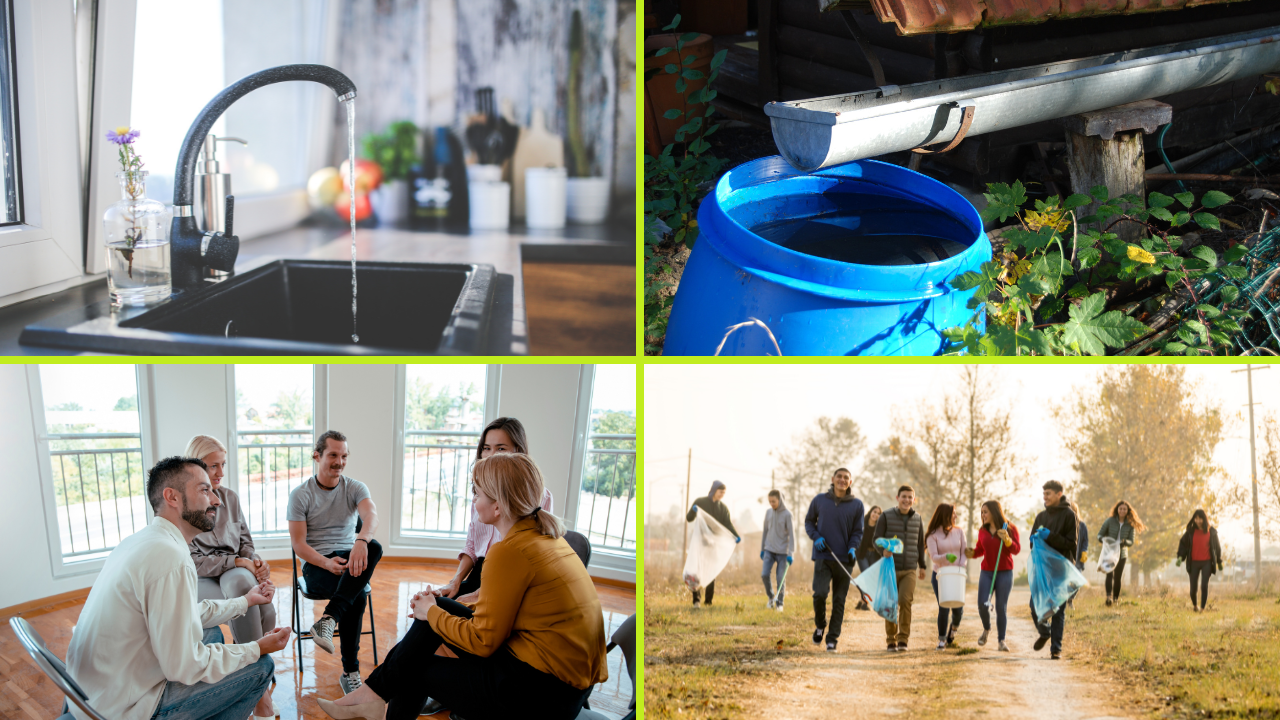
🚿 What Does “Water-Neutral” Mean?
A water-neutral hotel offsets as much water as it uses, aiming for net-zero impact on local freshwater resources.
It involves:
- 💧 Efficient use: Low-flow taps, dual-flush toilets, laundry reuse
- 🌧️ Rainwater harvesting: Capturing and storing rain for later use
- ♻️ Greywater reuse: Recycling water from sinks and showers for irrigation or toilets
- 💡 Guest education: Encouraging mindful water use
- 🤝 Community support: Funding local clean water or watershed protection projects
🏨 Top Water-Neutral Hotels in Southeast Asia
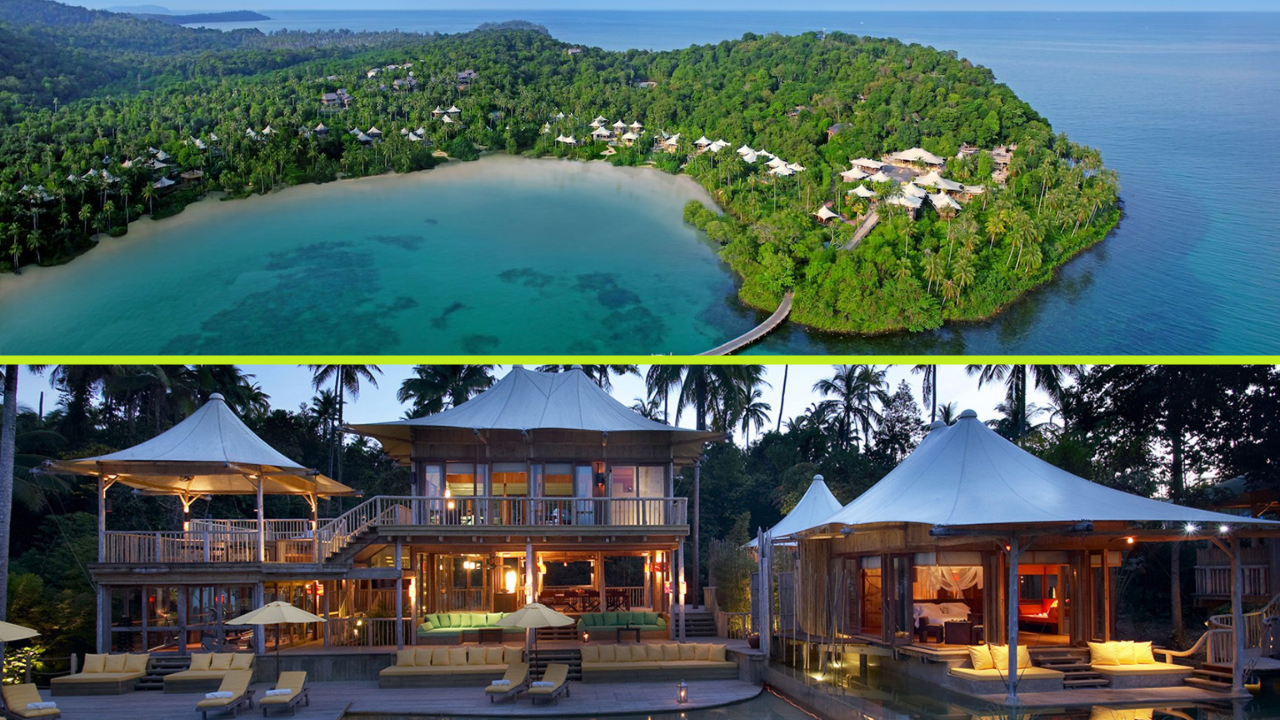
1. Soneva Kiri – Koh Kood, Thailand
📍 Secluded island in eastern Thailand
A model for regenerative luxury, Soneva Kiri’s water systems are as elegant as their villas.
Why it’s water-neutral:
- Rainwater catchment systems supply drinking and bathing water
- Greywater is used to irrigate organic gardens
- Compost toilets in select villas
- Guests are gifted stainless steel bottles to eliminate bottled water
🏡 Discover Eco Stays & Impactful Journeys
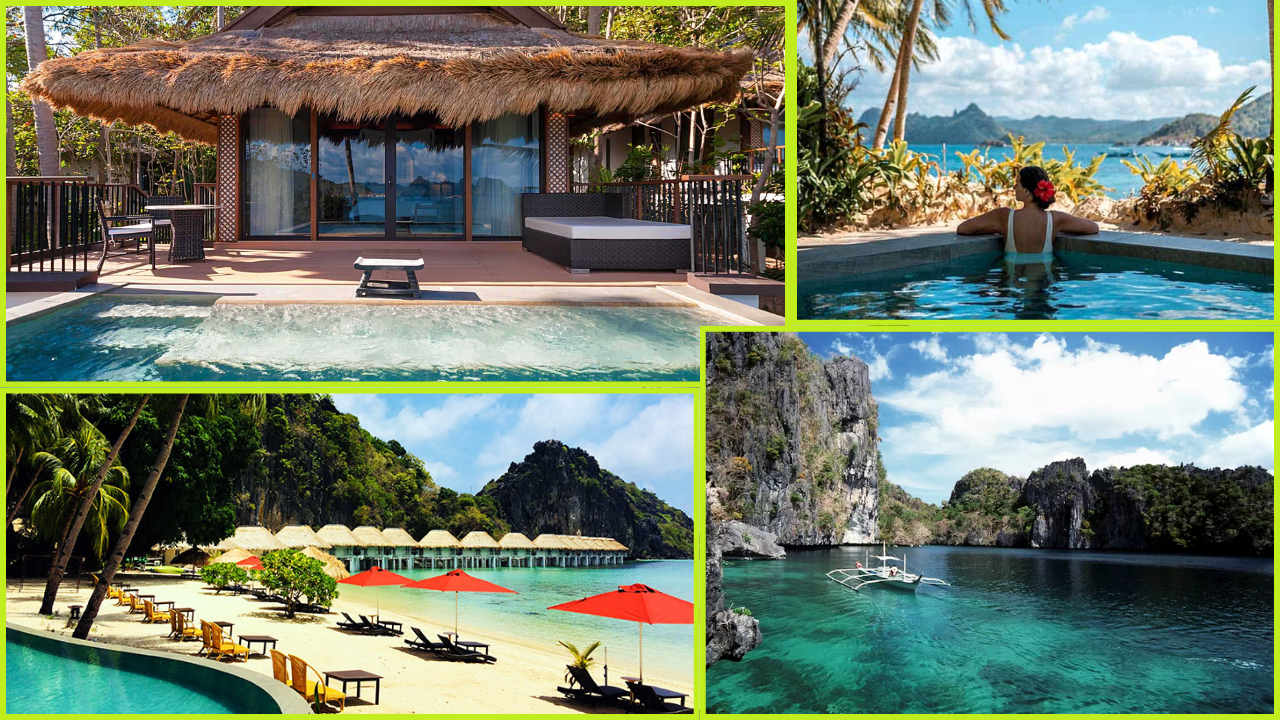
2. El Nido Resorts – Apulit & Pangulasian – Palawan, Philippines
📍 Remote marine protected areas
El Nido’s eco-resorts are known for conservation, but their water innovation is equally impressive.
Why it’s water-neutral:
- Desalination units reduce pressure on groundwater
- Greywater systems irrigate native flora
- All laundry outsourced to water-neutral partner laundries
- Rainwater stored in underground cisterns for dry seasons
🏡 Discover Eco Stays & Impactful Journeys
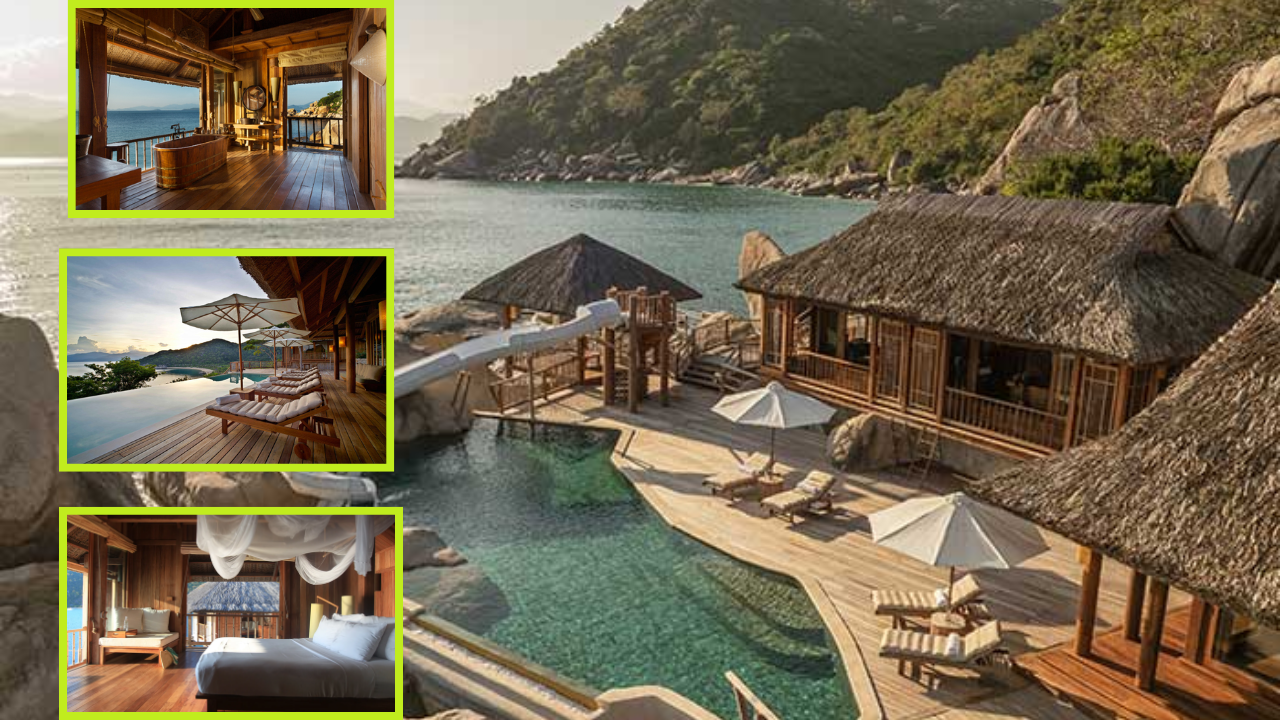
3. Six Senses Ninh Van Bay – Vietnam
📍 Nha Trang, Vietnam
This secluded cove offers off-grid eco-luxury—and strict water sustainability protocols.
Why it’s water-neutral:
- Uses rainwater tanks for villa water supply
- In-villa pool filtration recycles water
- Guest showers and hand basins are linked to a reuse system
- Monitors per-guest water use daily
🏡 Discover Eco Stays & Impactful Journeys
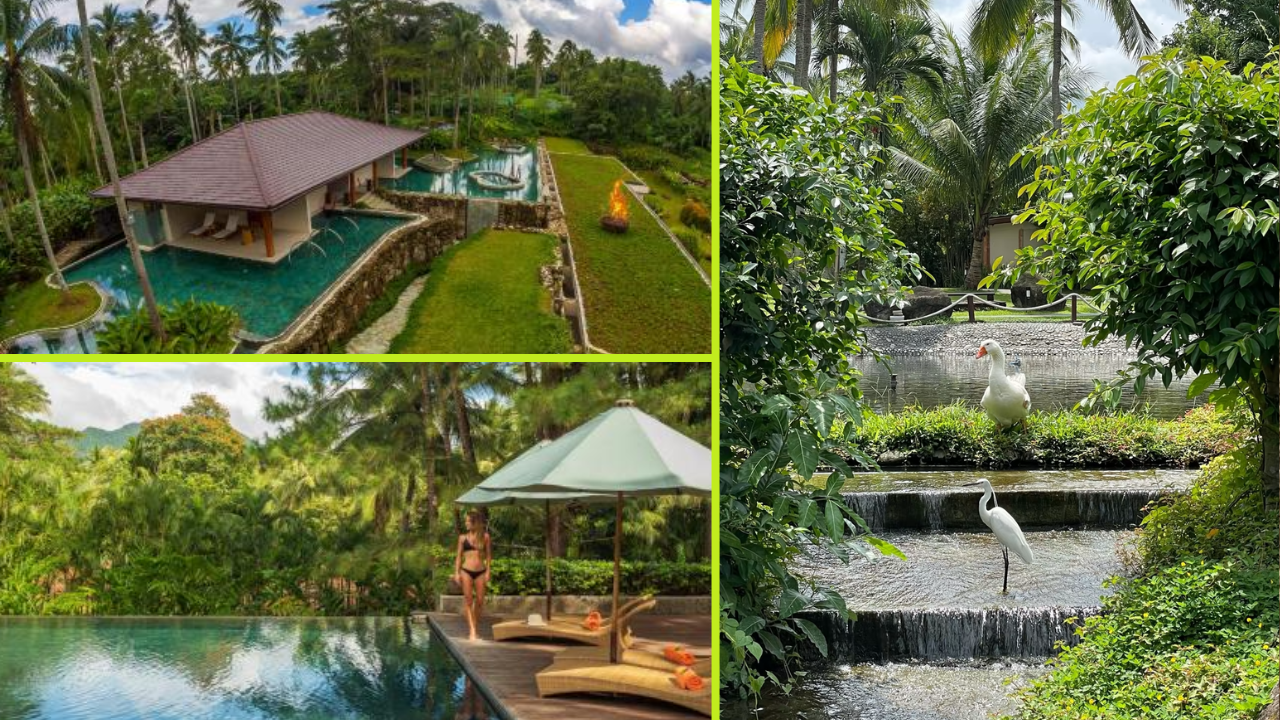
4. The Farm at San Benito – Batangas, Philippines
📍 Forest foothills near Manila
An award-winning wellness resort with water conservation built into its DNA.
Why it’s water-neutral:
- Rainwater collection feeds gardens and herbal steam rooms
- Water-efficient landscaping
- No chlorinated pools — uses natural filtration
- Greywater treated on-site and cycled into toilet systems
🏡 Discover Eco Stays & Impactful Journeys
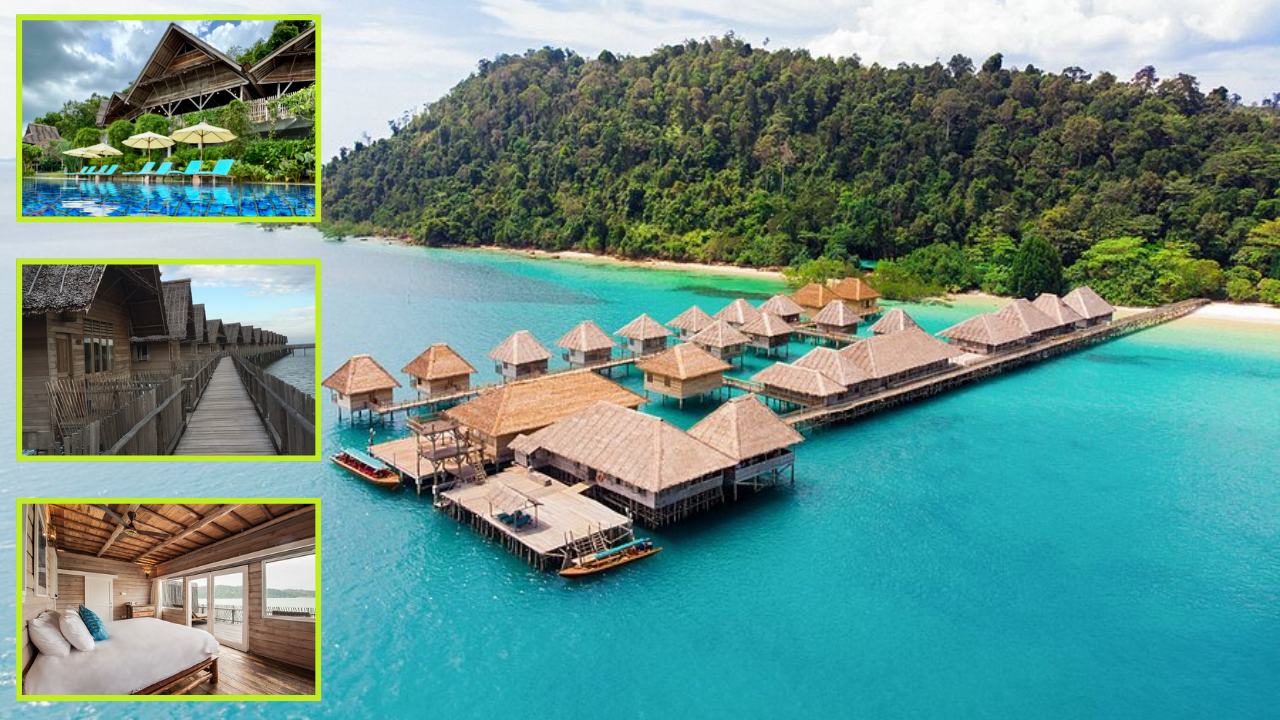
5. Telunas Private Island – Riau Islands, Indonesia
📍 Accessible only by boat from Batam
This barefoot island resort is a textbook example of water ethics.
Why it’s water-neutral:
- Gravity-fed water system from a freshwater stream
- Rainwater used for staff housing and community facilities
- Water meters in guest rooms to promote awareness
- On-site education for staff and guests on water conservation
🏡 Discover Eco Stays & Impactful Journeys
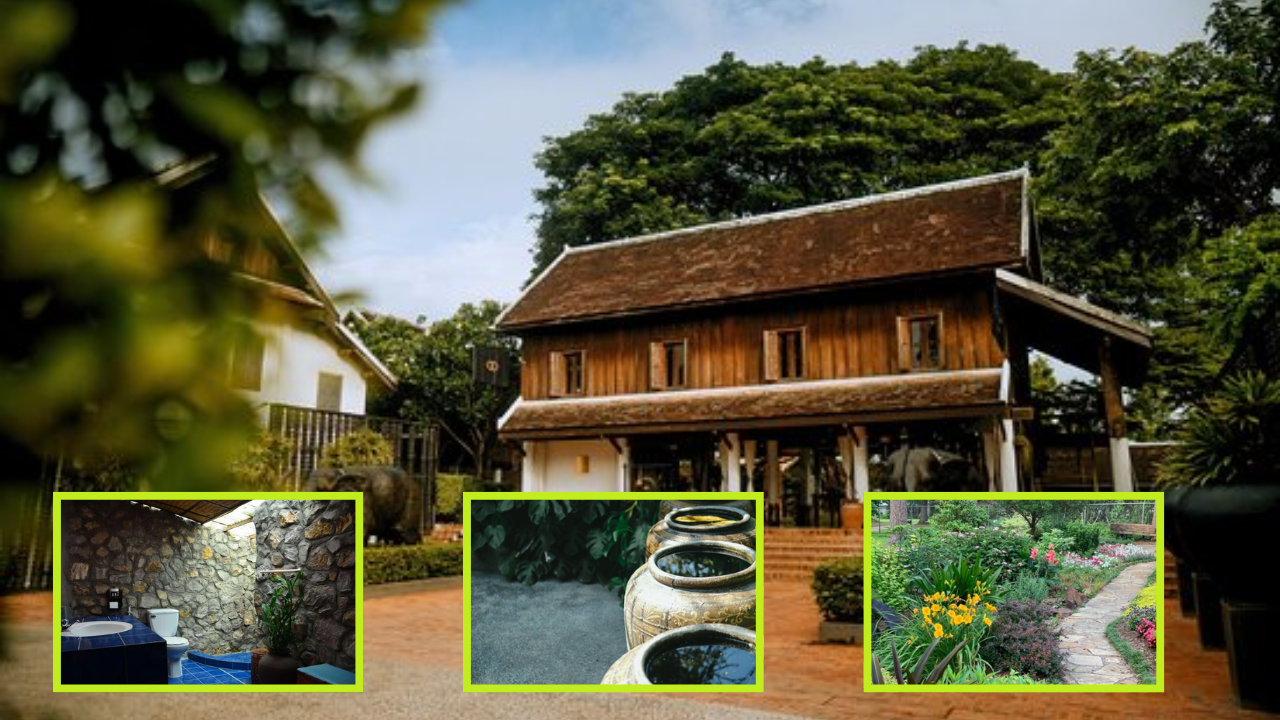
6. Tambo Lodge – Luang Prabang, Laos
📍 Eco-village outside town center
An affordable stay that proves you don’t need luxury to be water-conscious.
Why it’s water-neutral:
- Eco-toilets and waterless urinals
- Rainwater collected in traditional ceramic jars
- Uses native plants for landscaping to reduce irrigation needs
- Reuses dishwashing and shower water for gardens
🏡 Discover Eco Stays & Impactful Journeys
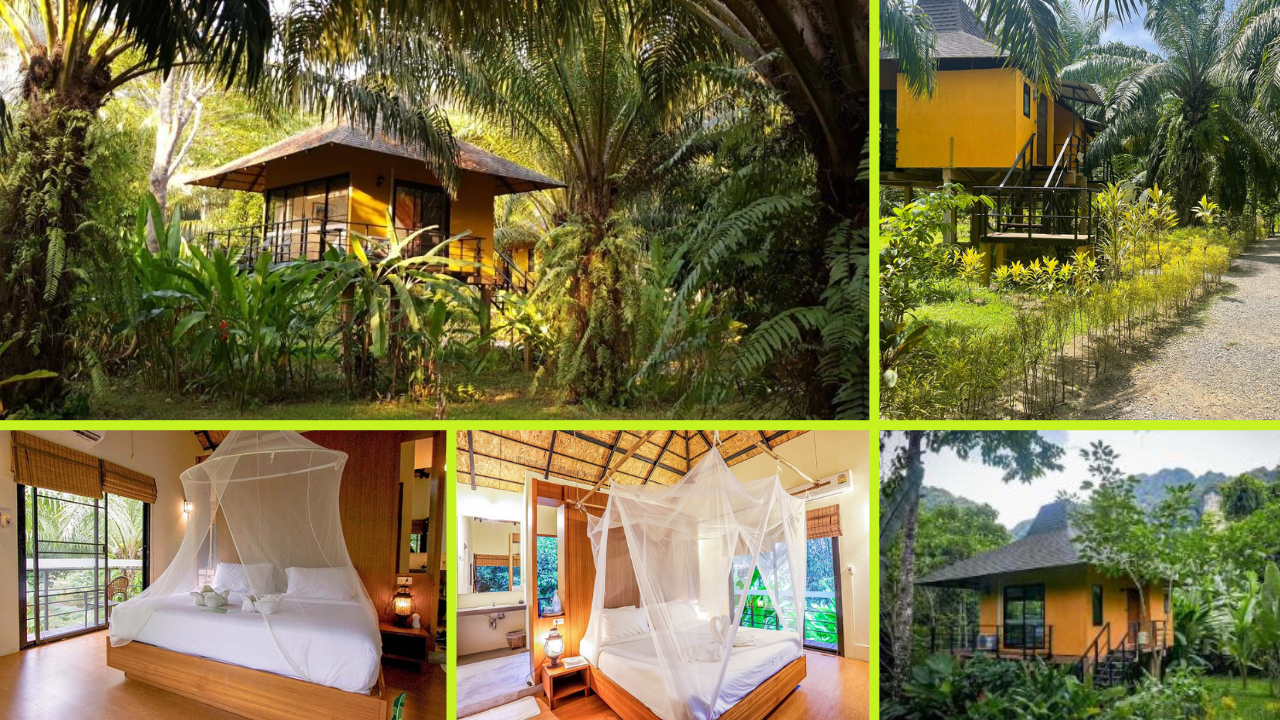
7. Anurak Community Lodge – Khao Sok, Thailand
📍 Rainforest near Khao Sok National Park
This award-winning jungle lodge champions water circularity.
Why it’s water-neutral:
- 100% of water used on-site is recycled
- Greywater treated naturally via reed beds
- Rainwater harvested via thatched roof channels
- Compost toilets in jungle suites
🏡 Discover Eco Stays & Impactful Journeys
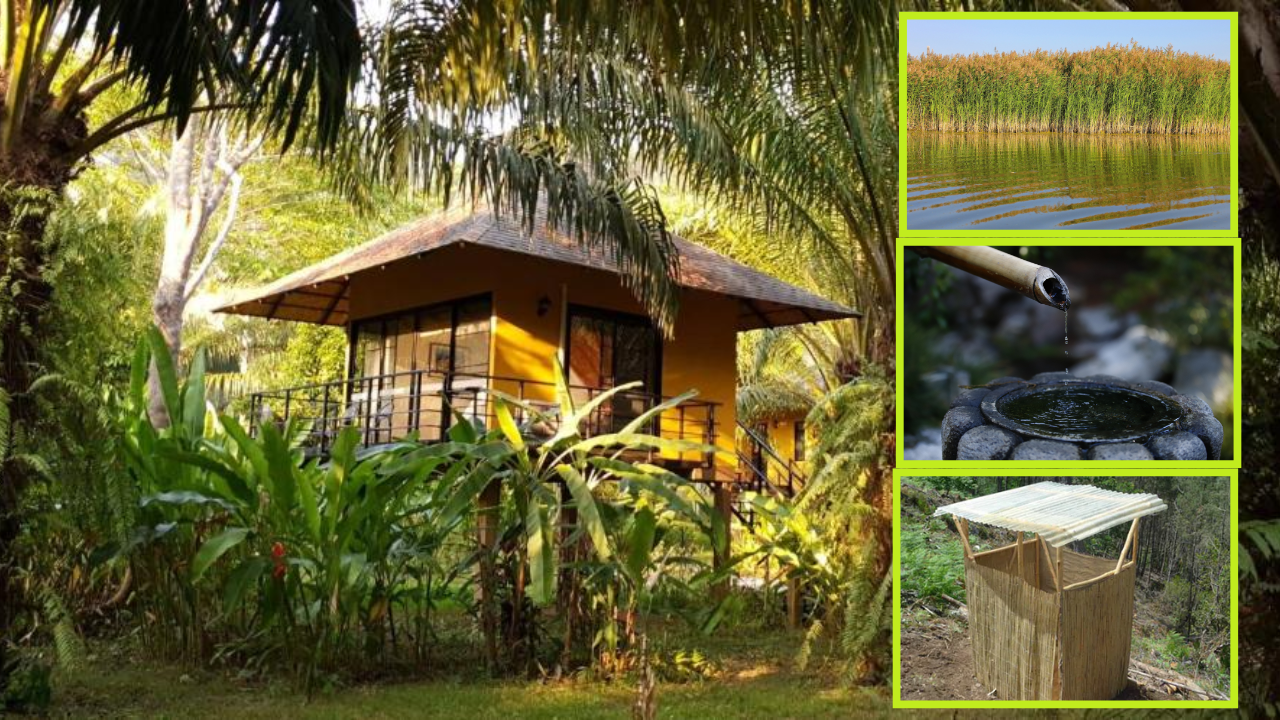
8. Nihi Sumba – Sumba Island, Indonesia
📍 One of the most remote luxury eco-resorts in the world
Nihi’s remoteness means independence—especially when it comes to water.
Why it’s water-neutral:
- Rain-fed water tanks for every villa
- Water-free urinals in public spaces
- On-site bottling plant using filtered rainwater
- Invests in village well systems for locals
🏡 Discover Eco Stays & Impactful Journeys
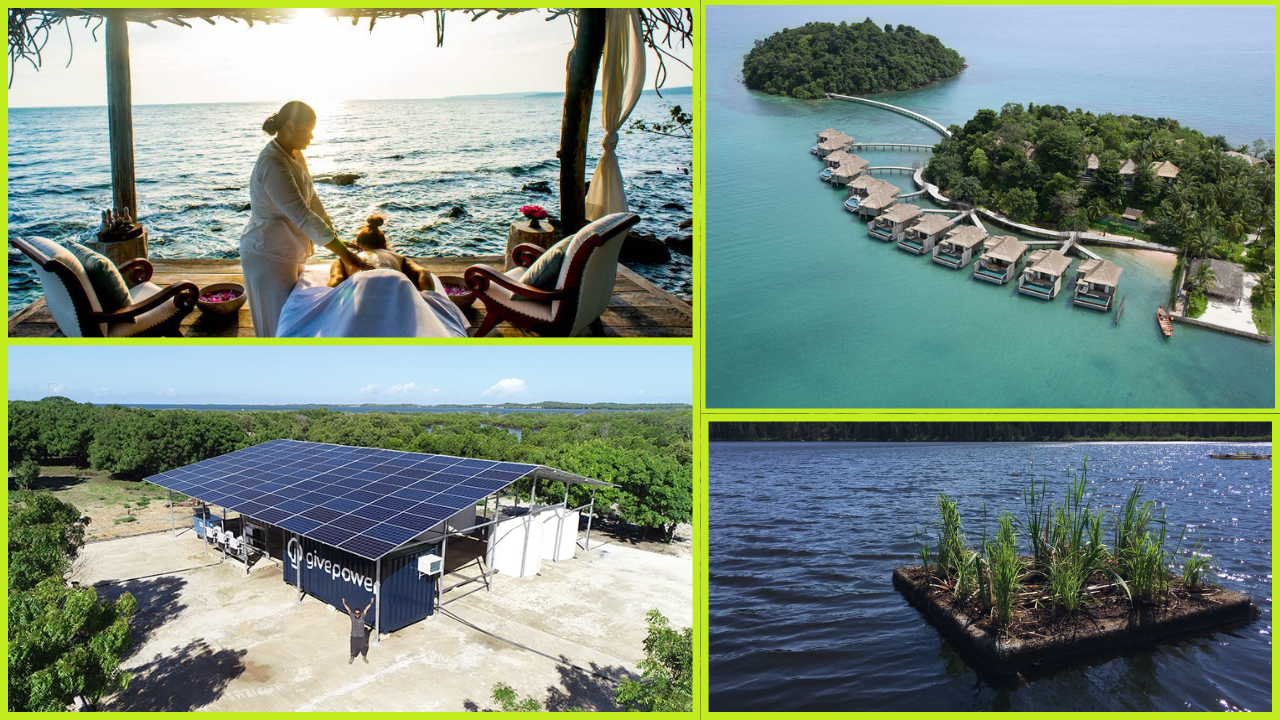
9. Song Saa Private Island – Cambodia
📍 Koh Rong Archipelago
This ultra-exclusive island stay operates off-grid with high sustainability standards.
Why it’s water-neutral:
- Solar-powered desalination
- Rainwater reuse in spa and garden
- Constructed wetlands to treat wastewater
- Funds village clean-water wells and filtration systems
🏡 Discover Eco Stays & Impactful Journeys
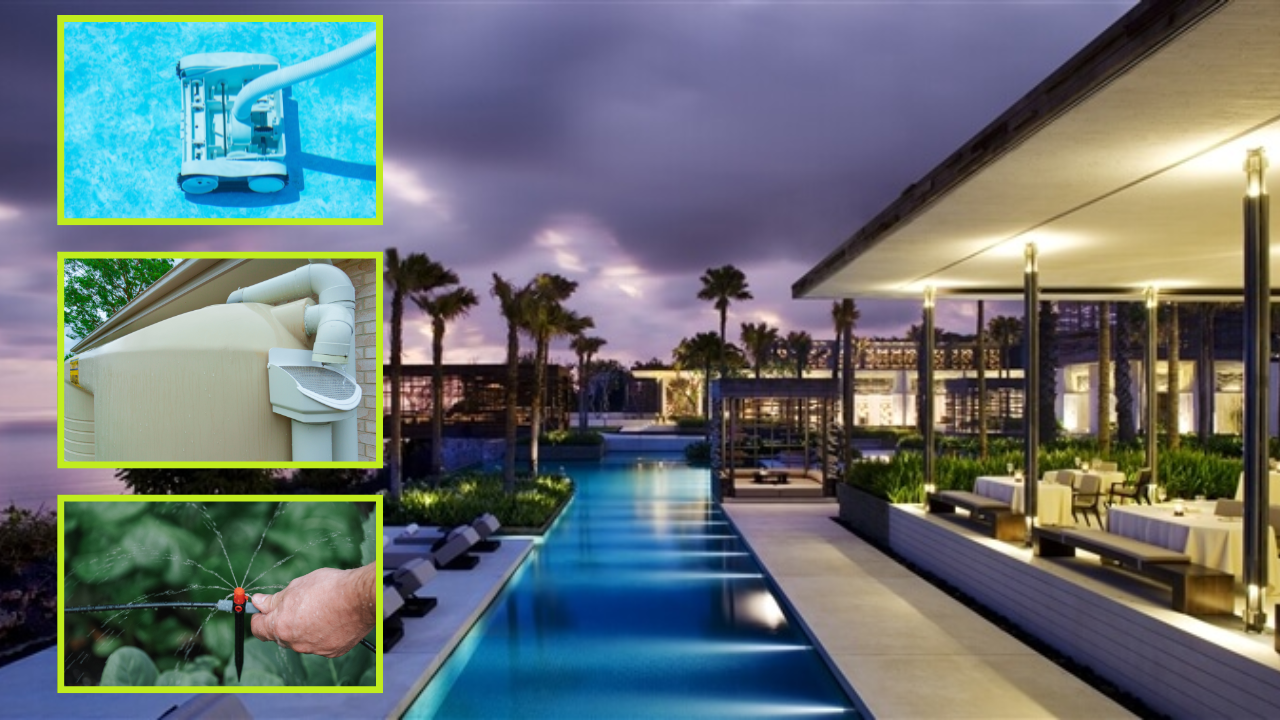
10. Alila Villas Uluwatu – Bali, Indonesia
📍 Clifftop retreat in southern Bali
Alila Uluwatu is Bali’s first EarthCheck Platinum-certified resort—and water is a major reason why.
Why it’s water-neutral:
- Greywater treated via UV and recycled into toilets
- Drip irrigation for all gardens and green roofs
- Rainwater harvesting systems on all rooftops
- Pools use saltwater filtration
🏡 Discover Eco Stays & Impactful Journeys
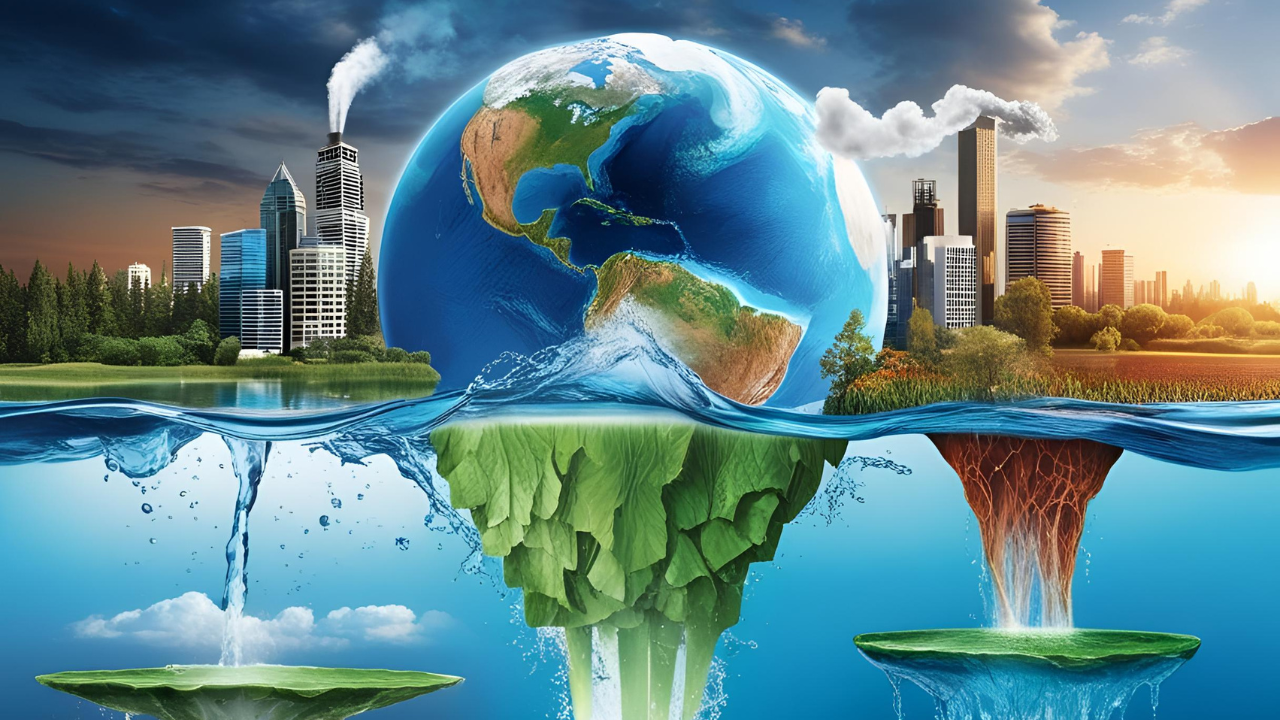
📊 Water Stats: A Crisis in the Making
- 🚿 A luxury hotel guest in Asia uses up to 3,000 liters/day, triple the local average
- 🏨 The UNWTO reports that 16% of tourism’s water use in Asia comes from hotels alone
- c (The Conversation)
Water-neutral hotels are not a trend—they’re a necessity.

✅ How to Identify a Water-Neutral Stay
Look for properties that:
- 🌧️ Harvest rainwater and clearly describe how it’s used
- ♻️ Recycle greywater for gardening or toilets
- 🚽 Use waterless or compost toilets where possible
- 💬 Offer guest education or water-use tracking tools
- 🌱 Integrate native plants to reduce irrigation
Also check for certifications:
- EarthCheck, Green Key, LEED, or WaterSense
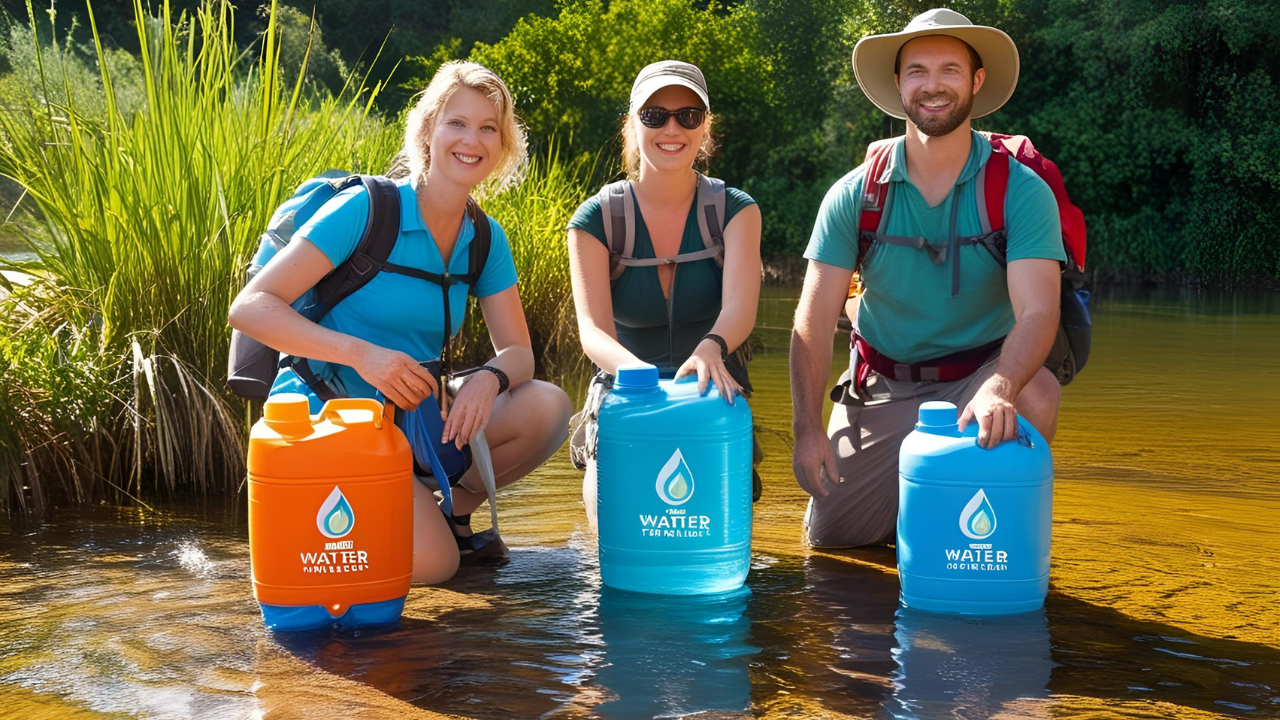
💡 Tips for Water-Wise Travelers
- ❌ Skip daily linen changes and long showers
- 🧴 Use reef-safe, biodegradable toiletries
- 💧 Carry a refillable water bottle
- 👣 Choose hotels with published sustainability reports
- 📣 Ask staff about their water initiatives—show it matters!

💬 Final Thoughts: Every Drop Makes a Difference
Choosing water-neutral hotels in Southeast Asia isn’t just about being “green.” It’s about justice — ensuring that luxury tourism doesn’t drain communities or ecosystems. These eco-stays prove that hotels can operate responsibly and regeneratively, all while offering world-class comfort.
So the next time you check in, check on their water too. Because when you stay at a water-wise hotel, you help ensure a cleaner, fairer, and more sustainable future—drop by drop.
Check this article also: Top 10 Sustainable Hotels in Bali: The Best Green Stays for Eco-Conscious Travelers









